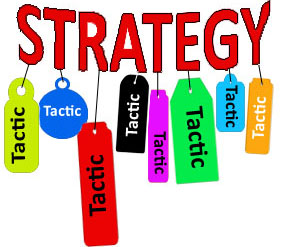Tactics vs. Strategy
Tactics are steps you take to win short term goals on the way to achieving your strategic objective. Sometimes tactical skirmishes distract workers compensation professionals from pursuit of their strategic goal. On the other hand, you can’t reach your strategic objective without well-thought-out tactics.
The Disputed Doctor’s Deposition
Take the case where an attorney insisted that the deposition of the doctor who provided the most recent report had to precede settlement discussions. The problem was that by the time that could happen, all the permanent disability would be paid out. After providing for future medical expense, that would leave no cash for the applicant or the attorney fees, jeopardizing the chance of a future Compromise & Release. When I pointed this out, the parties realized that a tactical victory could prevent achieving the strategic goal. The case C&R’d.
The Tale of the Two Interpreters
I arrived at a recent mediation to find the attorneys at loggerheads because both had ordered an interpreter. Both interpreters were court-certified. I convinced one of the attorneys that agreeing to dismiss the interpreter that attorney’s office had ordered would create a negotiating advantage. In the give-and-take of negotiation, opposing counsel might well feel beholden to make the next concession. Conceding the interpreter battle demonstrated the attorney’s reasonableness and set the stage for a productive mediation. The case C&R’d.
A litigation plan should be more than a checklist. Every tactic should further the effort to achieve the strategic goal.







